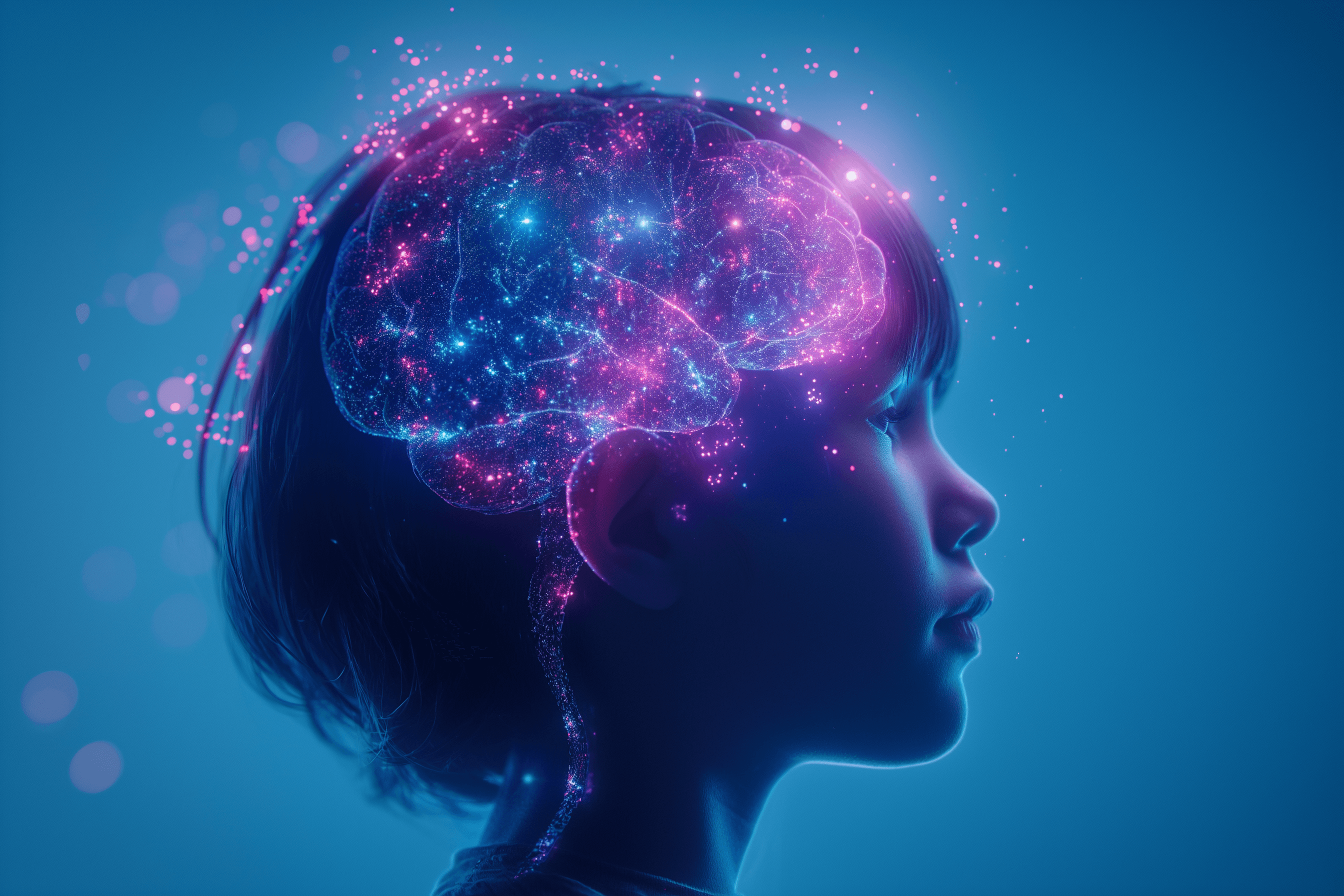The Rise of Personalized Generative AI
Welcome to the future of health, work, and longevity, where personalized generative artificial intelligence (AI) is revolutionizing the way we live. With cutting-edge technology that adapts to individual needs, this breakthrough is set to transform multiple industries. Powered by advanced algorithms and machine learning, personalized generative AI is paving the way for customized healthcare, empowering individuals to take control of their well-being like never before. From tailored treatment plans to real-time health monitoring, this innovation promises to not only enhance the quality of healthcare, but also extend human lifespan.
In the realm of employment, personalized generative AI is redefining productivity. By analyzing vast amounts of data, this AI-powered technology can provide users with personalized insights, recommendations, and solutions to optimize their work performance. Whether it's improving efficiency, enhancing decision-making, or streamlining workflows, this revolutionary tool has the potential to transform the way we work.
Step into the future and discover how personalized generative AI is shaping the world around us. Join us as we delve into the limitless possibilities of this groundbreaking technology and explore the new frontiers it opens up for health, work, and longevity.
The impact of personalized generative AI on health
Personalized generative AI is revolutionizing the healthcare industry by offering customized solutions tailored to individual needs. This cutting-edge technology has the potential to transform the way we approach disease prevention, diagnosis, and treatment.
One of the key benefits of personalized generative AI in healthcare is its ability to analyze vast amounts of data, including genetic information, medical history, and real-time health monitoring, to create personalized treatment plans. By leveraging machine learning algorithms, this AI-powered technology can identify patterns, predict disease risk, and recommend targeted interventions that are specific to each patient's unique physiology and lifestyle.
This level of personalization not only enhances the effectiveness of treatments but also reduces the risk of adverse reactions and improves patient outcomes. Imagine a future where every individual has access to a personalized health assistant that can continuously monitor their wellbeing, provide early warning signs of potential health issues, and recommend proactive steps to maintain optimal health. Personalized generative AI is making this vision a reality, empowering patients to take a more active role in their healthcare journey.
Applications of personalized generative AI in the workplace
In the rapidly evolving world of work, personalized generative AI is transforming the way we approach productivity, decision-making, and professional development. By analyzing vast amounts of data, this cutting-edge technology can provide users with personalized insights, recommendations, and solutions to optimize their performance.
One of the key applications of personalized generative AI in the workplace is in the realm of task automation and workflow optimization. By understanding an individual's unique work patterns, preferences, and strengths, this AI-powered technology can automate repetitive tasks, streamline processes, and suggest personalized strategies to enhance efficiency. Imagine a future where your digital assistant can anticipate your needs, prioritize your tasks, and provide real-time recommendations to help you stay on track and achieve your professional goals.
Moreover, personalized generative AI can play a crucial role in employee training and development. By analyzing an individual's learning style, skills, and career aspirations, this technology can curate personalized learning paths, recommend relevant courses or workshops, and provide tailored feedback to support professional growth. This personalized approach not only enhances the effectiveness of training programs but also boosts employee engagement and job satisfaction, ultimately contributing to the overall success of the organization.
The role of personalized generative AI in extending longevity
As we strive to live longer, healthier lives, personalized generative AI is poised to play a pivotal role in extending human longevity. By leveraging advanced algorithms and machine learning, this cutting-edge technology can provide personalized insights and recommendations to support various aspects of health and wellness.
One of the key areas where personalized generative AI can contribute to longevity is in the realm of preventive healthcare. By analyzing an individual's genetic profile, medical history, and lifestyle factors, this AI-powered technology can identify potential health risks and recommend proactive measures to mitigate them. From personalized diet and exercise plans to targeted interventions for chronic conditions, personalized generative AI can empower individuals to take control of their health and make informed decisions that support long-term wellbeing.
Moreover, personalized generative AI can play a crucial role in the development of personalized therapies and treatments. By understanding the unique characteristics and needs of each individual, this technology can help researchers and healthcare providers design more effective and targeted interventions, leading to improved patient outcomes and increased longevity. Imagine a future where every person has access to a personalized health assistant that can continuously monitor their wellbeing, provide early warning signs of potential health issues, and recommend tailored solutions to maintain optimal health and extend their lifespan.
Ethical considerations of personalized generative AI
As the adoption of personalized generative AI continues to grow, it is crucial to address the ethical implications of this transformative technology. While the potential benefits are vast, there are also significant concerns that must be carefully considered to ensure the responsible and equitable development and deployment of personalized generative AI.
One of the primary ethical concerns is the issue of privacy and data protection. Personalized generative AI relies on the collection and analysis of vast amounts of personal data, including sensitive information such as health records, genetic profiles, and behavioral patterns. It is essential to establish robust data privacy and security measures to protect individuals' right to privacy and prevent the misuse or exploitation of this sensitive information.
Another ethical consideration is the potential for bias and discrimination. Personalized generative AI systems are trained on data that may reflect societal biases and inequalities. If not designed and implemented with a strong focus on fairness and inclusivity, these systems could perpetuate or even exacerbate existing disparities in healthcare, employment, and other areas. It is crucial to address these biases and ensure that personalized generative AI is developed and deployed in a way that promotes equity and social justice.
Challenges and limitations of personalized generative AI
While the potential of personalized generative AI is undeniable, it is essential to acknowledge the challenges and limitations associated with this emerging technology. Addressing these obstacles will be crucial to the successful and responsible development and deployment of personalized generative AI.
One of the primary challenges is the availability and quality of data. Personalized generative AI relies on vast amounts of high-quality, diverse data to train its algorithms and provide accurate and relevant insights. However, obtaining and curating such data can be a significant challenge, particularly in sensitive domains like healthcare, where data privacy and security concerns must be carefully addressed.
Another limitation is the complexity and interpretability of personalized generative AI models. As these systems become increasingly sophisticated, understanding the underlying decision-making processes can become increasingly challenging. This "black box" problem can make it difficult to explain and justify the recommendations or actions of personalized generative AI, which is crucial for building trust and ensuring accountability.
Future prospects and advancements in personalized generative AI

As personalized generative AI continues to evolve, the future prospects for this transformative technology are both exciting and promising. With ongoing advancements in machine learning, data processing, and computational power, the capabilities of personalized generative AI are expected to expand exponentially in the years to come.
One of the key areas of advancement is the integration of personalized generative AI with emerging technologies, such as wearable devices, Internet of Things (IoT) sensors, and advanced imaging techniques. By seamlessly integrating these technologies, personalized generative AI will be able to collect and analyze an even richer and more comprehensive set of data, leading to more accurate and personalized insights and recommendations.
Moreover, the continued development of natural language processing and multimodal learning will enhance the ability of personalized generative AI to communicate with users in a more natural and intuitive way. Imagine a future where your personal digital assistant can engage in natural conversations, understand your unique needs and preferences, and provide tailored guidance and support across various aspects of your life.
Industries and sectors benefiting from personalized generative AI
The transformative potential of personalized generative AI extends across a wide range of industries and sectors, each poised to reap the benefits of this cutting-edge technology.
In the healthcare sector, personalized generative AI is revolutionizing the way we approach disease prevention, diagnosis, and treatment. By leveraging advanced algorithms and machine learning, this technology can provide customized healthcare solutions, from personalized treatment plans to real-time health monitoring and early intervention.
The financial services industry is also embracing the power of personalized generative AI. By analyzing an individual's financial history, spending patterns, and risk preferences, this technology can offer personalized investment strategies, portfolio management solutions, and financial planning recommendations, empowering users to make more informed decisions and achieve their financial goals.
Personalized generative AI tools and platforms
As the demand for personalized generative AI solutions continues to grow, a diverse array of tools and platforms have emerged to cater to the needs of various industries and users. These innovative technologies are designed to harness the power of advanced algorithms and machine learning to deliver customized insights, recommendations, and solutions.
One such platform is [Platform A], which leverages personalized generative AI to provide tailored healthcare solutions. By integrating with various data sources, including electronic health records, genetic profiles, and wearable device data, [Platform A] can create personalized treatment plans, recommend preventive measures, and monitor individual health in real-time.
Another example is [Platform B], a personalized generative AI solution designed for the workplace. This platform analyzes an individual's work patterns, preferences, and skills to automate tasks, optimize workflows, and provide personalized recommendations for professional development and career advancement. [Platform B] empowers users to enhance their productivity, streamline their workday, and unlock their full potential.
Conclusion: The transformative potential of personalized generative AI
The rise of personalized generative AI is poised to revolutionize the way we approach health, work, and longevity. This cutting-edge technology has the power to transform the healthcare industry by providing customized treatment plans, enhance workplace productivity and efficiency, and extend human lifespan through personalized preventive measures and targeted interventions.
As we navigate this exciting new frontier, it is crucial to address the ethical considerations and challenges associated with personalized generative AI, ensuring that its development and deployment are guided by principles of privacy, fairness, and accountability. By doing so, we can harness the transformative potential of this technology to create a future where individuals are empowered to take control of their health, optimize their professional performance, and live longer, healthier lives.
The possibilities are endless, and the future is now. Embrace the power of personalized generative AI and unlock the extraordinary potential it holds for transforming the world around us.








